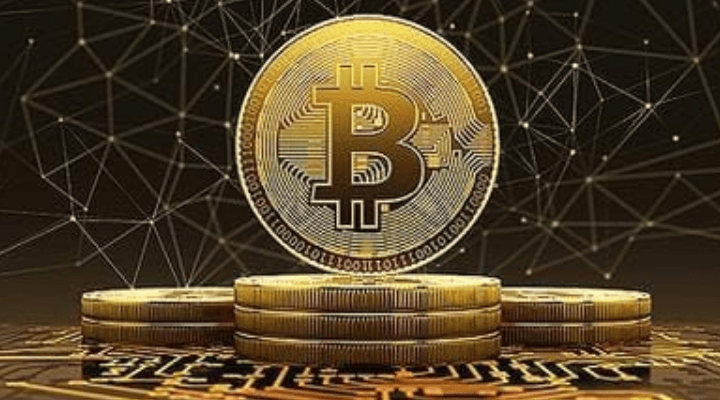The costs of everything are going up. Mcdonald's, insurance, cars, interest rates on credit cards, education, entertainment, and even eggs have become overpriced. And now, they are prepping us that the inflation won't leave easily and that the Fed will have to slow the economy to curb the inflation.
I saw an article today saying to invest in fine art, wine, and property to beat inflation. This is like telling a car mechanic to wear a three-piece suit to work. The article was written for someone, but it wasn't targeting me.
But there are a couple of problems with the Fed single-handedly fighting inflation. First, the Fed has induced inflation by printing massive amounts of money with loose monetary policy (low-interest rates). Can we depend on the Fed, who got us into this mess, to navigate us out of our mess? Second, if we know our currency is losing buying power, where can we park it and protect our wealth?
The first question comes down to your faith. Regardless of what I say, you either have faith in the Fed or don't.
Examining the second question, what are our options for allocating our wealth? If the Fed continues battling inflation, interest rates will remain elevated for longer than we want to believe. High-interest rates are negative for stocks. Consumption decreases when people have less money due to higher credit costs and inflation. This impacts companies' earnings negatively.
Housing also performs badly in a high-interest-rate environment. As mortgage rates increase, the cost of financing a home goes up. Further, homeowners with low-interest rate loans are less likely to move into more expensive homes.
Bonds may make sense if you have a lot of wealth and want to protect it. But I'd be surprised if bonds can outpace inflation enough to significantly impact an ordinary person's lifestyle. And I don't know enough about fine art or wine to confidently diversify in these asset classes.
We know that savings in a bank account will be a net loser as the banks always have to win, and inflation will outrun any interest we earn.
By deduction, that leaves us with Bitcoin. And luckily, Bitcoin's narrative gains strength in an uncertain environment like the one we are in.
Why it's a fallacy to look at Bitcoin as a risk-on or risk-off asset
It may be too late to get disgustingly rich from Bitcoin in a couple of years. While that reality existed a decade ago, the crypto space has matured, and while you can still make life-changing money, you probably aren't going to turn a $5000 Bitcoin investment into $1 million in four years.
The media tells us that Bitcoin is a risk-on asset. This means it will do well when the stock market does well, and people are willing to embrace risk. This is a lie. Perhaps for professional investors and traders, Bitcoin is a risk-on asset. But for normal people, it's smarter to take a more organic approach.
Let's compare the risk-on and risk-off mentality to eating. If we are skinny and eat too much (risk-on), we will put on weight and feel like crap. Conversely, if we are overweight and stop eating (risk-off), we will lose weight but be irritable and low-energy. Both options suck.
But, if we take the third option of eating moderately, we will maintain a healthy weight and feel good. But, unfortunately, the mainstream media doesn't want to give us this third option with Bitcoin.
Why Bitcoin is a Conservative Investment Today
It sounds ironic or perhaps even stupid to say that an asset that can go down 70% in a year is a conservative investment. However, accumulating Bitcoin during bear markets has proven an extremely effective strategy.
If you think ten years in the future, will you care if you bought Bitcoin for $15,000, $20,000, or $25,000? It will either be worth exponentially more by that time or, if it fails, it will be worth nothing.
The macro economy only impacts Bitcoin because most people still need to figure Bitcoin out. So they want to try to play the highs and the lows. I know I did when I first got into the crypto market.
However, once we alter our perception from "Should I own Bitcoin?" to "How much Bitcoin should I own?" that is when the real magic begins.
How to make sure you have the right perception
As fiat currencies' values wither and central banks scramble to create authoritative digital currencies, more people will look for an alternative allowing them to own and control their own wealth. Bitcoin is the only true digitally fungible item that affords people this freedom.
They can try (and have tried) creating a Bitcoin competitor, but they have yet to succeed. It's like trying to create a football competitor to the NFL or a baseball competitor to the MLB. It won't work. The moat is too large.
And because of Bitcoin's resilience and battle-testing over the past decade-plus, it has earned its classification as an asset class. This is obvious as banks and corporations are clamoring to get involved with this asset class.
Moreover, billionaires want to acquire as much as possible because they understand it will ensure their long-term wealth. Finally, struggling countries are beginning to embrace Bitcoin because it provides hope for seeing their economies thrive and compete.
The Limited Supply
Think of Bitcoin as similar to oceanfront property. As the number of oceanfront lots dwindles, their value increases. If we look at the past fifty years, oceanfront properties have dramatically outpaced the rest of the real estate market in terms of valuation. Just as these oceanfront lots have been acquired, developed, and coveted over the past five decades, Bitcoin will do the same thing.
The people acquiring Bitcoin today are like those in 1965 who realized that living by the ocean will always be sought after. It will remain desirable, and oceanfront lots can't be easily created. Today, acquiring oceanfront property requires saying top dollar and buying it from an owner who understands its value.
On the other hand, Bitcoin isn't fairly valued. It is trading at a significant discount from its value because people don't realize they are invested in a desert property with their fiat currency. As they recognize Bitcoin as a digital oceanfront property, its value will skyrocket.
Consistent accumulation is the sanest approach.
If you take the approach of accumulating Bitcoin in moderation, it becomes an easy process leaving you feeling good. If the price increases, it's great because your net worth, measured in fiat, increases. If the price goes down, it's great because you can now acquire more Bitcoin.
An entire industry exists trying to get you time Bitcoin buys and sells. But, in reality, if these people were so good at timing Bitcoin buys and sells, why in the hell are they sharing this knowledge with you? Wouldn't they buy on heavy leverage at the bottom and short on heavy leverage at the top?
If you can ignore the noise and accumulate how much you want steadily, you can be confident in owning something that is not a risk-on or risk-off asset. Its value won't be tied to central bank interest rates. And when the oceanfront lots are completely gone, you will be extremely happy to own your spot in the sun.

 English
English
 Deutch
Deutch
 Espanol
Espanol
 Francais
Francais
 Portugues
Portugues
 日本
日本
 한국인
한국인
 Türk
Türk
 Русский
Русский
 Tiếng Việt
Tiếng Việt

